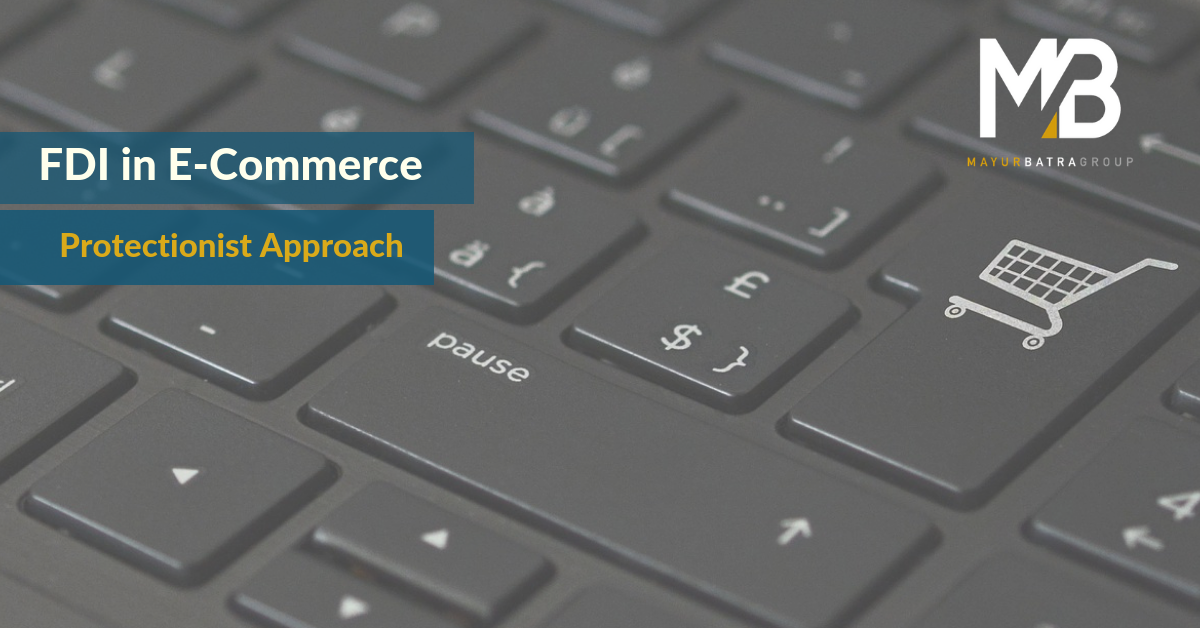FDI in E-Commerce – Protectionist Approach

On 26th day of December 2018, the Department of Policy and Promotion (“DIPP”) vide Press Note-2 (“the PN 2”) has amended Para 5.2.15.2 of the FDI Policy, 2017.
This amendment will come into force from February 01, 2019 and impacts all marketplace based e-commerce entities that are operating in India.
There are 2 types of models existing in the e-commerce sector, i.e. marketplace model of e-commerce and inventory model of e-commerce. 100% FDI under automatic route is permitted in the marketplace model of e-commerce and FDI is not permitted in the inventory model of e-commerce.
The key amendments carried out in the marketplace model of e-commerce are as follows:
- Cap on vendor purchases: The erstwhile policy provided that an e-commerce entity will not permit more than 25% of the sales value on financial year basis affected through its marketplace from one vendor or their group companies. The PN 2 states an e-commerce entity providing a market place will not exercise ownership or control over the inventory i.e. goods purported to be sold. Such ownership or control over the inventory will render the business into inventory based model. Inventory of a vendor will be deemed to be controlled by e-commerce market place entity if more than 25% of purchases of such vendor are from the marketplace entity or its group companies.
- Restriction on sale by related entities: The PN 2 states that if an e-commerce marketplace entity or its group companies have “equity participation” in another entity or control the inventory of such entity, such entity would not be permitted to sell its products on the marketplace.
- Exclusivity: The PN 2 states that an e-commerce marketplace entity will not mandate any seller to sell any product exclusively on its platform only. This could have a direct bearing on exclusive deals that are often promoted on e-commerce platforms.
- Support services: The PN 2 states that:
- an e-commerce marketplace entity; or
- entities having direct/indirect equity participation or common control by e-commerce marketplace entity
- Compliance: The PN 2 provides that the e-commerce marketplace entity will be required to furnish a certificate along with a report of a statutory auditor to Reserve Bank of India, confirming the compliance of the guidelines mentioned in the PN 2, by 30th September every year for the preceding financial year.
Tag: Ecommerce


